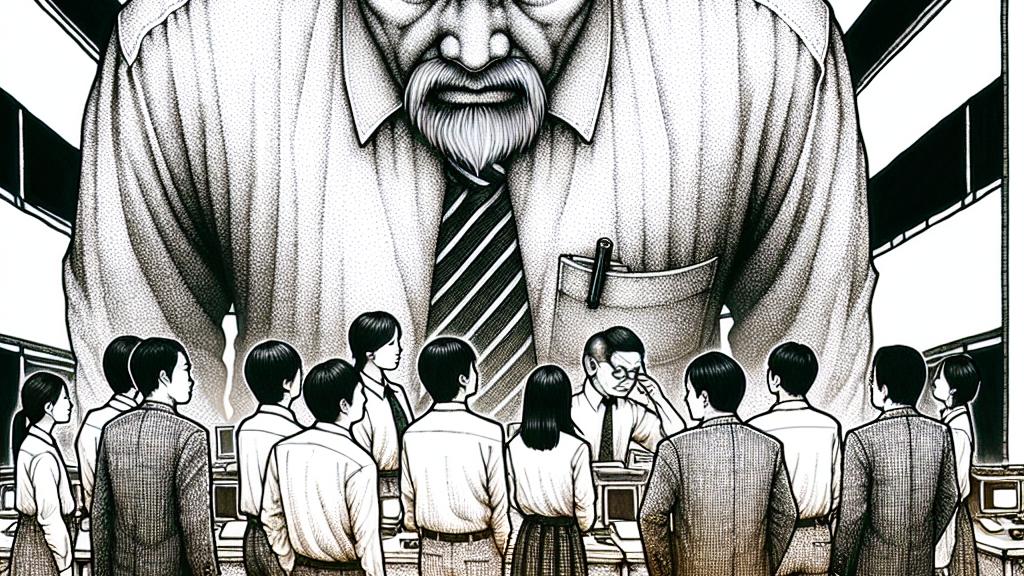Power Harassment Purge: The Reckoning of the Office Tyrant!
Overview
- A striking case in a Japanese workplace illuminates the severe consequences of power harassment.
- The company's rigorous no-tolerance policy sets a new standard for addressing workplace bullying.
- This incident prompts broader discussions on employee rights, corporate culture, and the future of workplace dynamics.

Power Harassment in Japan: A Growing Concern
Power harassment, or 'pawahara,' is an escalating issue in Japanese workplaces, contributing to toxic environments that severely affect employee morale and productivity. Recent events spotlight the case of a newly hired employee, referred to as the 'power harassment uncle,' who faced swift backlash after transferring to a company dedicated to curbing such detrimental behavior. Unfazed by previous warnings, he continued his aggressive tactics, which included belittling younger employees and creating a hostile atmosphere. This situation highlights how harassment by even a single individual can disrupt team cohesion and have far-reaching consequences for the organization's culture. The unfolding story emphasizes a crucial truth: the importance of creating safe, respectful workplaces where every employee's dignity is upheld.
Immediate and Effective Corporate Action
The company's response to the harassment incident was both decisive and methodical. Rather than resorting to outright termination, management enforced its strict no-tolerance policy with a focus on restructuring the harasser's role within the organization. He was strategically removed from all significant projects, placed under close supervision, and explicitly instructed to avoid contact with junior staff. These measures signal a firm commitment to fostering a healthier workplace and demonstrate that such aggressive antics will not be tolerated. Employees reported feeling empowered by the firm stance taken by management, reinforcing their belief in an organizational culture that prioritizes respect and accountability. The effects of this decision ripple through the workforce, paradigmatically showcasing how active intervention can cultivate a positive work environment.
Long-Term Implications and Future Considerations
This incident serves as a vital case study in the ongoing fight against workplace harassment, raising important conversations about corporate responsibility and workplace culture. As companies adopt strict anti-harassment policies, this story underscores the importance of maintaining an open dialogue about inappropriate behavior, not only from a legal standpoint but also as an ethical imperative. Employees are increasingly encouraged to voice their concerns without fear of retaliation or negative repercussions, which is essential for cultivating a culture of mutual respect. However, the power dynamic created by harsh punitive measures also warrants caution; aggressive purge strategies risk creating environments of fear or silence. Therefore, organizations must strive for a balanced approach that promotes both accountability and support, ensuring that employees feel valued and respected while also upholding company standards.

Loading...